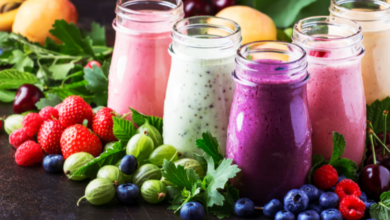Can You Consume Energy Drinks During Pregnancy? A Comprehensive Guide

Introduction
Pregnancy brings a host of new dietary considerations, and one question many expectant mothers ask is whether it’s safe to consume energy drinks. These beverages are popular for their caffeine content and energy-boosting effects, but their safety during pregnancy is a topic of concern. This article explores the potential risks and benefits of consuming energy drinks while pregnant, providing a thorough overview to help you make informed choices.
- Understanding Energy Drinks
1.1 What Are Energy Drinks?
- Ingredients: Energy drinks typically contain a combination of caffeine, sugar, and other stimulants like taurine, guarana, and ginseng. Some also include vitamins, amino acids, and herbal extracts.
- Purpose: These drinks are marketed to enhance physical and mental performance, increase alertness, and combat fatigue.
1.2 Common Brands and Variations
- Popular Brands: Brands such as Red Bull, Monster, and Rockstar are well-known in the energy drink market. They vary in caffeine content and additional ingredients.
- Sugar-Free Options: Many energy drinks offer sugar-free versions that use artificial sweeteners to provide a low-calorie alternative.
- Caffeine and Its Effects During Pregnancy
2.1 Recommended Caffeine Intake
- Guidelines: Most health organizations, including the American College of Obstetricians and Gynecologists (ACOG) and the World Health Organization (WHO), recommend limiting caffeine intake during pregnancy to about 200-300 milligrams per day.
- Sources of Caffeine: Caffeine is found in coffee, tea, chocolate, some medications, and energy drinks. Monitoring total caffeine consumption from all sources is crucial.
2.2 Risks of Excessive Caffeine Consumption
- Miscarriage Risk: High caffeine intake has been associated with an increased risk of miscarriage in some studies. Limiting caffeine to recommended levels can help reduce this risk.
- Preterm Birth: Excessive caffeine consumption may be linked to a higher risk of preterm birth. Staying within safe limits helps mitigate this risk.
- Fetal Development: High caffeine intake may affect fetal development, particularly in the early stages. It can impact brain development and lead to potential behavioral issues later in life.
- Energy Drinks and Pregnancy: Specific Concerns
3.1 Caffeine Content in Energy Drinks
- High Levels: Many energy drinks contain significantly higher levels of caffeine compared to coffee or tea. For example, a single can of Red Bull contains about 80 milligrams of caffeine, while some energy drinks can have up to 300 milligrams per serving.
- Cumulative Effects: Consuming multiple energy drinks or combining them with other sources of caffeine can quickly exceed the recommended daily limit, posing risks to both mother and baby.
3.2 Other Stimulants and Additives
- Taurine and Guarana: Ingredients like taurine and guarana can have stimulant effects and may interact with caffeine, potentially increasing overall stimulant exposure.
- Herbal Extracts: Herbal extracts found in some energy drinks may have unknown effects during pregnancy. Limited research exists on their safety for pregnant women.
3.3 Sugar Content and Artificial Sweeteners
- High Sugar Levels: Many energy drinks are high in sugar, which can contribute to excessive weight gain, gestational diabetes, and dental problems.
- Artificial Sweeteners: Sugar-free energy drinks may contain artificial sweeteners like aspartame or sucralose. While these are generally considered safe, some prefer to limit their intake during pregnancy.
- Potential Health Risks and Complications
4.1 Impact on Maternal Health
- Increased Heart Rate and Blood Pressure: The stimulants in energy drinks can cause increased heart rate and blood pressure, which may pose risks for pregnant women with pre-existing conditions.
- Dehydration: Energy drinks can have a diuretic effect, potentially leading to dehydration. Staying well-hydrated is essential during pregnancy.
4.2 Effects on Fetal Health
- Developmental Issues: Excessive caffeine and stimulants may affect fetal development, potentially leading to issues with growth and development.
- Behavioral Concerns: There is some evidence to suggest that high caffeine intake may be associated with behavioral problems in children later in life.
- Alternatives to Energy Drinks
5.1 Safe Ways to Boost Energy
- Balanced Diet: Eating a well-balanced diet rich in fruits, vegetables, whole grains, and lean proteins can help maintain energy levels naturally.
- Regular Exercise: Engaging in moderate exercise, as advised by your healthcare provider, can boost energy levels and improve overall well-being.
- Adequate Rest: Prioritizing good sleep and relaxation can help manage fatigue and maintain energy levels throughout pregnancy.
5.2 Healthy Beverage Choices
- Herbal Teas: Opt for caffeine-free herbal teas like ginger or peppermint, which can provide a soothing and hydrating alternative.
- Fruit Infused Water: Infusing water with fruits like lemon or berries can offer a refreshing, hydrating option without added sugars or caffeine.
- Practical Tips for Managing Energy During Pregnancy
6.1 Monitoring Caffeine Intake
- Read Labels: Pay close attention to the caffeine content in energy drinks and other products to ensure you stay within recommended limits.
- Track Consumption: Keep track of your total caffeine intake from all sources, including coffee, tea, and medications.
6.2 Consulting Healthcare Providers
- Seek Guidance: If you have concerns about energy drinks or caffeine consumption, consult your healthcare provider for personalized advice and recommendations.
- Discuss Alternatives: Your provider can help you find safe and effective ways to manage fatigue and boost energy during pregnancy.
- Conclusion
Drinking energy drinks during pregnancy is generally not recommended due to the high caffeine content, additional stimulants, and potential risks to both maternal and fetal health. While moderate caffeine intake is usually considered safe, energy drinks often exceed the recommended limits and can pose additional risks. Opting for safer alternatives and focusing on a balanced diet, regular exercise, and adequate rest can help manage energy levels and support a healthy pregnancy.
Brief
Energy drinks, with their high caffeine content and additional stimulants, pose potential risks during pregnancy. Excessive caffeine intake can increase the risk of miscarriage, preterm birth, and developmental issues. It is advisable to avoid energy drinks and seek safer alternatives to boost energy, such as a balanced diet, regular exercise, and adequate rest. Consulting with a healthcare provider can help manage fatigue and ensure a healthy pregnancy.




